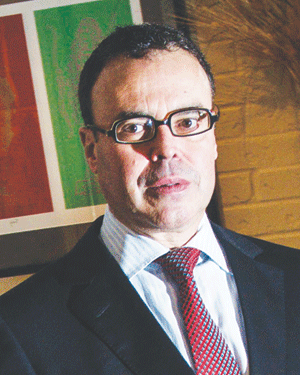An Ontario Court judge’s recent decision to allow an aboriginal girl with cancer to withdraw from chemotherapy and pursue traditional treatment is a throwback to a “prescientific era,” says a Toronto health lawyer.

The judge allowed the 11-year-old aboriginal girl, who has lymphoblastic leukemia, to seek alternative treatment at a Florida clinic in accordance with the wishes of her mother, D.H., after she invoked the constitutional rights of aboriginal people to make their own treatment decisions.
But Toronto lawyer Alan Belaiche says the decision was a huge leap backwards and “should definitely be appealed.”
“What is glaringly absent from the decision is any meaningful consideration of the child’s best interest. And in lieu, the judge appears to have decided that a constitutional principle will trump all other considerations, including, most importantly, the best interest of the child,” he says.
“In my view, invoking and then essentially importing a constitutional principle, however laudable and important it may be, into the health-care context — where to my knowledge it’s never been judicially recognized in Canada — without considering the subject’s best interest is not a decision to be celebrated but a decision that should definitely be appealed.”
The court decided the girl, identified only as J.J., isn’t a child in need of protection as alleged by McMaster Children’s Hospital, the facility that treated her until her withdrawal in August. The court also found a constitutional protection for the right of aboriginal people to pursue traditional treatment as opposed to western medicine. “It is this court’s conclusion therefore, that D.H.’s decision to pursue traditional medicine for her daughter J.J. is her aboriginal right,” wrote Justice Gethin Edward. “Further, such a right cannot be qualified as a right only if it’s proven to work by employing the western medical paradigm. To do so would be to leave open the opportunity to perpetually erode aboriginal rights.”
Edward emphasized the mother’s deep commitment to her longhouse beliefs and her belief that traditional medicines work.
“This is not an 11th-hour epiphany employed to take her daughter out of the rigours of chemotherapy. Rather, it is a decision made by a mother, on behalf of a daughter she truly loves, steeped in a practice that has been rooted in their culture from its beginnings,” wrote Edward.
But according to Belaiche, former general counsel at St. Michael’s Hospital, the court had a duty to examine the efficacy of the alternative treatment the child would receive.
“From having worked in a hospital, there is no question that alternative and complementary therapy have a place but cannot and should not be treated in isolation,” he says. “It seems to me in the circumstances of this case, when one is dealing with a minor, it is incumbent upon a court to consider the efficacy of such alternative treatments against others.”
The judge’s reasoning about preserving aboriginal culture “seems to me to be a political agenda that effectively ignores the best interest of the minor and rolls back time to a historic prescientific era,” says Belaiche.
According to the ruling, the hospital’s position was that initial testing on the child showed she had a 90- to 95-per-cent chance of survival with chemotherapy. The hospital also said it wasn’t aware of any survivors of the disease without chemotherapy treatment.
Bioethics lawyer Mark Handelman says the Consent and Capacity Board would have been in a better position to deal with this case.
Handelman, a former vice chairman of the board, says he was “surprised that the case turned on the constitutional right of the girl’s mother to make her own treatment decisions.”
Handelman doesn’t believe the child needed protection because her mother didn’t refuse to make a treatment decision but had instead made one the doctors didn’t agree with. In this case, it would have been best to leave the issue to the Consent and Capacity Board, he suggests.
Toronto family lawyer Donald Baker calls the decision “extraordinary.” He compares the case to jurisprudence that has seen the children of Jehovah’s Witness families ordered back into treatment when their parents disagreed. That the girl was of an aboriginal background in this case had “everything” to do with the court’s decision, he says.
“These are constitutional issues which really go back to the time of when this country was formed — who has what powers over which people. To basically take this girl from that almost-guaranteed life-saving effort by the doctors and maybe kill her is really extraordinary. It’s shocking to me, but I’m not aboriginal and my code rights are not being trampled on,” he adds.

 The judge allowed the 11-year-old aboriginal girl, who has lymphoblastic leukemia, to seek alternative treatment at a Florida clinic in accordance with the wishes of her mother, D.H., after she invoked the constitutional rights of aboriginal people to make their own treatment decisions.
The judge allowed the 11-year-old aboriginal girl, who has lymphoblastic leukemia, to seek alternative treatment at a Florida clinic in accordance with the wishes of her mother, D.H., after she invoked the constitutional rights of aboriginal people to make their own treatment decisions.